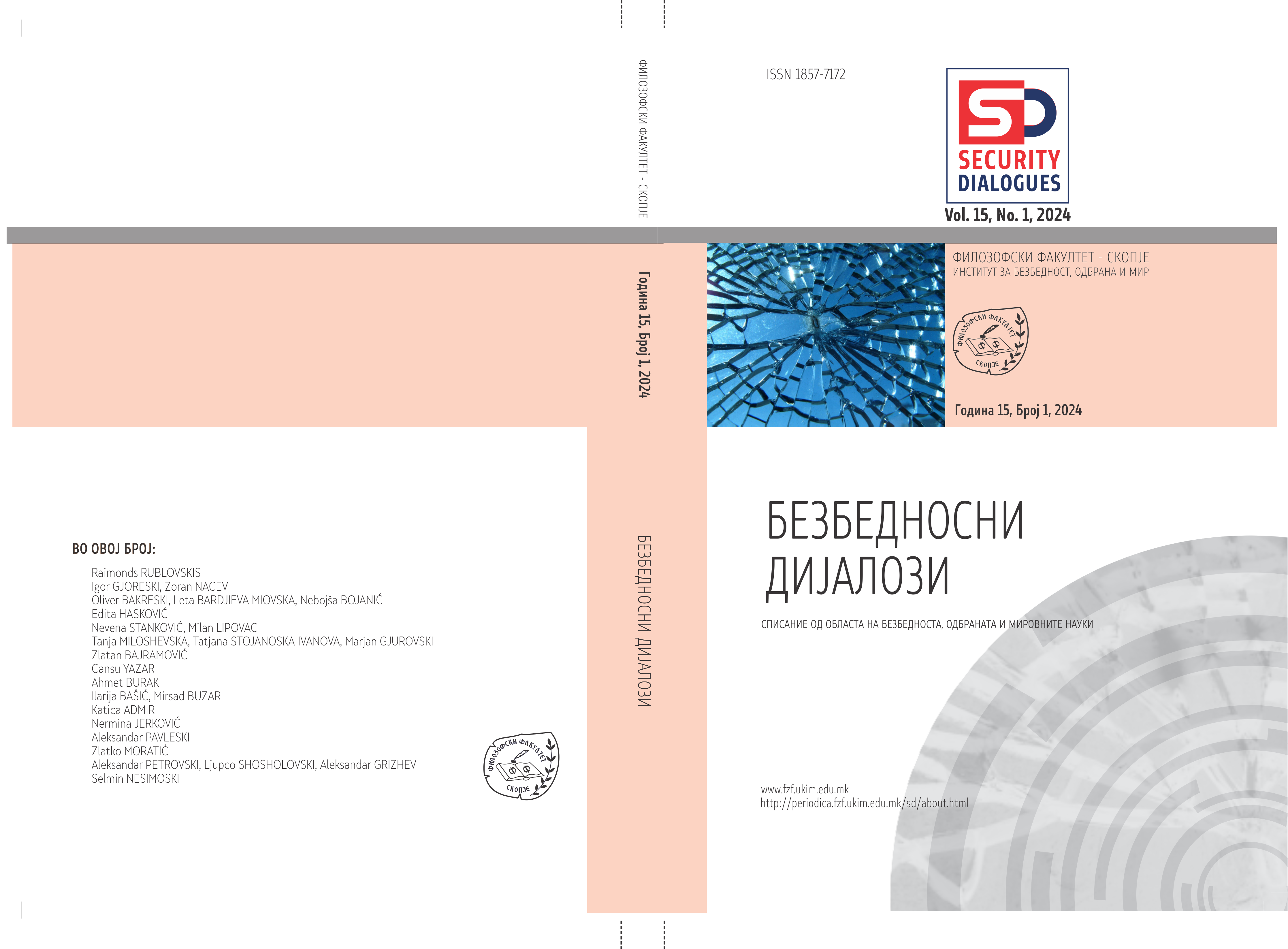EXPLORING THE IMPACT OF MIGRATION, ENVIRONMENT AND CLIMATE CHANGE ON NORTH MACEDONIA: A SYSTEMATIC REVIEW
EXPLORING THE IMPACT OF MIGRATION, ENVIRONMENT AND CLIMATE CHANGE ON NORTH MACEDONIA: A SYSTEMATIC REVIEW
Author(s): Aleksandar Petrovski, Ljupcho Shosholovski, Aleksandar GrizhevSubject(s): Politics / Political Sciences, Politics, Social Sciences, Sociology, Environmental and Energy policy, Migration Studies, Geopolitics, Asylum, Refugees, Migration as Policy-fields
Published by: Филозофски факултет, Универзитет "св. Кирил и Методиј"
Keywords: migration; environment; climate change; North Macedonia
Summary/Abstract: The question of how migration, environment and climate change interact has been a topic of increasing interest in North Macedonia. Estimates of the numbers of people who may be displaced by climate change-related phenomena by 2050 range from 50 million to 1 billion people, with the most cited number, 200 million, being based on projections by Norman Myers in 1995 and 2000 [1]. However, Myers himself has admitted to uncertainty in his estimate and that necessary extrapolations were made due to a lack of available data [1]. Additionally, the high-end estimate, of 1 billion people displaced by 2050, comes from a Christian Aid report [1]. It is acknowledged that climate change will not alone cause conflict, but it is also accepted that it has the potential to exacerbate or catalyze conflict in conjunction with other factors [1]. Examining the impact of migration, environment, and climate change on North Macedonia: a systematic review, the pathway is non-linear, and, in some cases, climate-induced conflict may in turn cause migration [1]. Current research indicates that climate migration will not necessarily increase the risk of conflict, however, linking climate migration to conflict is difficult since the relative importance of climate migration, among the many other drivers, must be determined [1]. All factors involved in the system, which are linking climate, migration and conflict are location dependent, and the relationship between climate change, migration and conflict depends on social, demographic, economic and political drivers [1]. Future research should focus on the local interplay of multiple drivers that influence whether the climate will increase the risk of conflict, and Neo-Malthusian theory suggesting that as populations continue to increase, competition for resources will also increase, and could lead to conflict as the inequalities increase between those in control of resources and those who do not have access [1]. Even though the climate-migration-conflict pathway is viewed as linear and even deterministic in the media, scholars are increasingly cautious when discussing the pathway, and the potential impacts of climate variability and change on migration and conflict will remain an important area of research and policy planning [1].
Journal: Bezbednosni dijalozi
- Issue Year: 15/2024
- Issue No: 1
- Page Range: 221 - 232
- Page Count: 12
- Language: English

